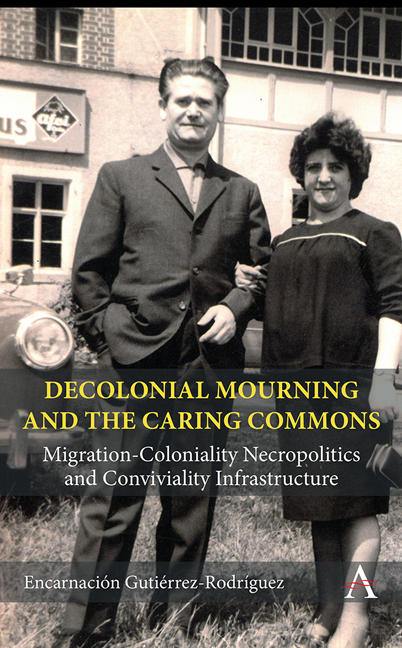 Decolonial Mourning and the Caring Commons
Decolonial Mourning and the Caring Commons Published online by Cambridge University Press: 29 February 2024
Introduction
On 9 November 2017, the German newspaper Der Tagesspiegel published “Die Liste” (The List): the names of 33,293 persons who lost their lives in the Mediterranean between 2013 and 2015. The List was compiled by Istanbul-based artist Banu Cennetoğlu in collaboration with the Amsterdam project United for Intercultural Action, a network of NGOs working against nationalism, racism, fascism and supporting migrants and refugees. In 1993, this network of volunteers began to uncover the names and personal details of those unable to “legally” access the European Union as well as the circum-stances leading to their deaths. In a 2018 interview with Charlotte Higgins featured in The Guardian, Cennetoğlu comments on the hurdles she encountered while seeking funding and institutional support for this project. Since its appearance in Tagesspiegel, The List has been published in Greece, Bulgaria, the United States, Germany, Switzerland, Turkey and the United Kingdom. In the interview, Higgins (ibid.) classifies the work of Cennetoğlu on two levels: as (a) an act of mourning, “a lament” and (b) “practical work” manifested in the compilation of the material.
As I will argue throughout this chapter, Higgins's differentiation between mourning and work is common to modern occidental thought. Yet this divide has been complicated through peoples’ beliefs, understandings and practices throughout history. Mourning is work or Trauerarbeit (grief work): a series of activities that deal with pain, memory, care and social reproduction and stand at the center of our lives. Despite the taboo around death in twentieth-century Northern American and Central European urban industrial settings (Gorer 1965; Ariès 1975), the twenty-first century is marked by the return of death (Gatti and Martinez 2020) and an increasing preoccupation with communal mourning (Butler 1997, 2020; Muñoz 1999).
This chapter follows these observations by raising the question of mourning as labor—as everyday activity shaping our common lives. I explore Sigmund Freud's Trauerarbeit as decolonial practice, emanating and surfacing at the entanglement of coloniality-migration. Deriving from practices of resilience and resistance, grief works through the pain of loss while pragmatically dealing with the impact of necropolitical realities. The labor of mourning is characterized by its immediacy to life, its maintenance and its reproduction. It counters thanatopolitics and contours new future paths. Decolonial mourning manifests the death-life continuum (Rodríguez Aguilera 2021) while engaging with the reproduction of the cycles of life (Tzul Tzul 2018a) through communal political practices of resistance (Leyva Solano 2019; Ortega 2019).
To save this book to your Kindle, first ensure [email protected] is added to your Approved Personal Document E-mail List under your Personal Document Settings on the Manage Your Content and Devices page of your Amazon account. Then enter the ‘name’ part of your Kindle email address below. Find out more about saving to your Kindle.
Note you can select to save to either the @free.kindle.com or @kindle.com variations. ‘@free.kindle.com’ emails are free but can only be saved to your device when it is connected to wi-fi. ‘@kindle.com’ emails can be delivered even when you are not connected to wi-fi, but note that service fees apply.
Find out more about the Kindle Personal Document Service.
To save content items to your account, please confirm that you agree to abide by our usage policies. If this is the first time you use this feature, you will be asked to authorise Cambridge Core to connect with your account. Find out more about saving content to Dropbox.
To save content items to your account, please confirm that you agree to abide by our usage policies. If this is the first time you use this feature, you will be asked to authorise Cambridge Core to connect with your account. Find out more about saving content to Google Drive.